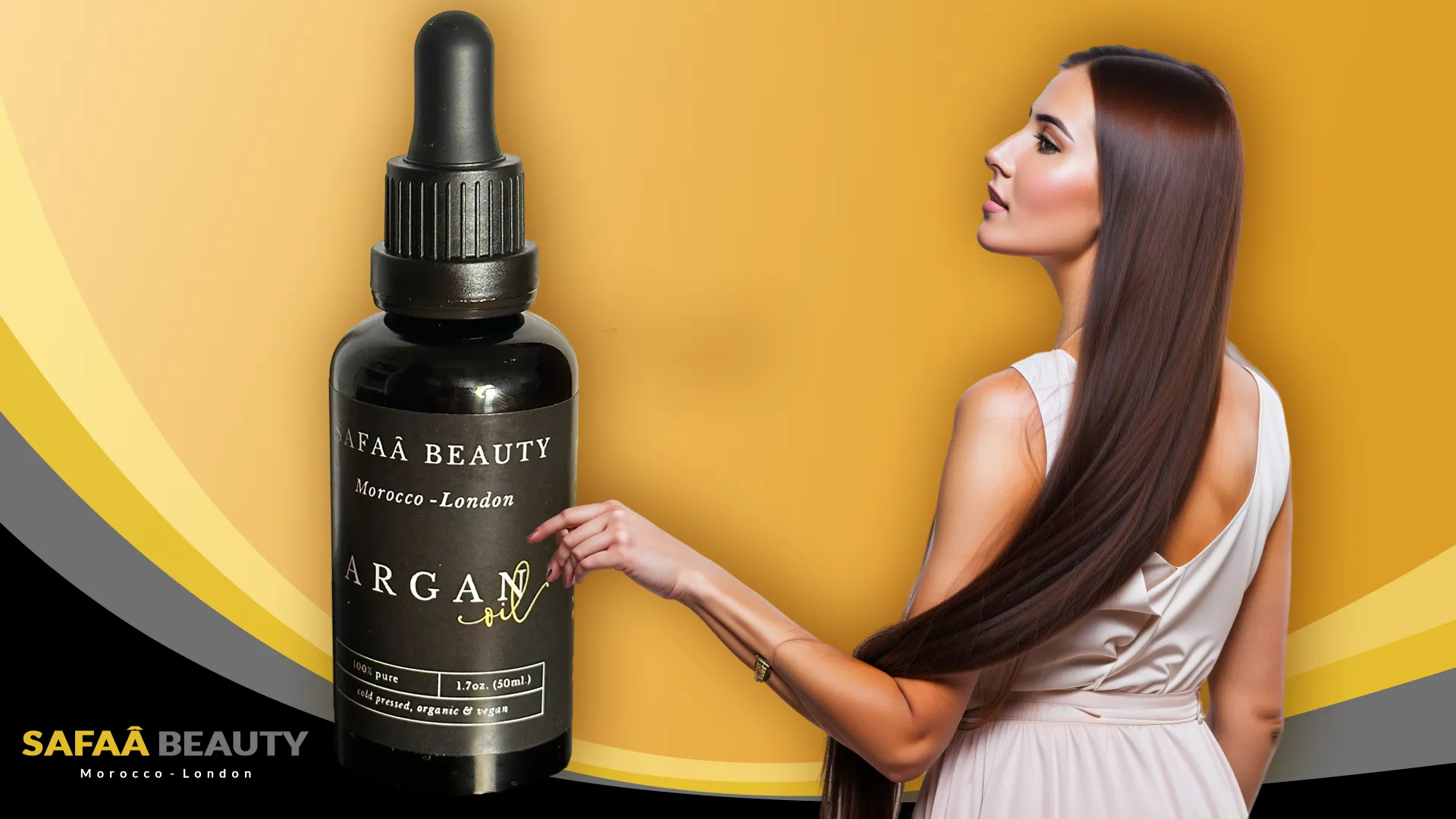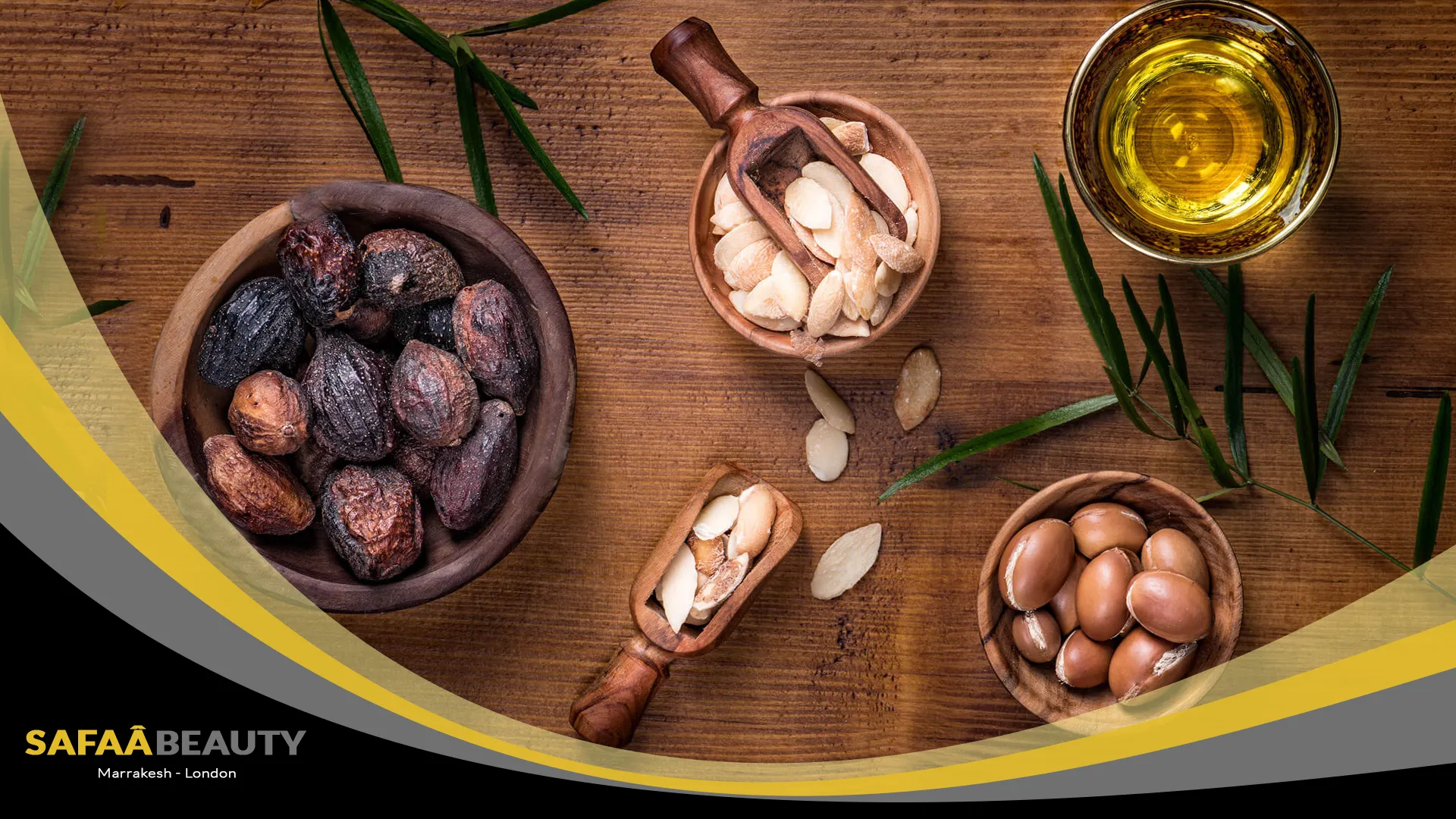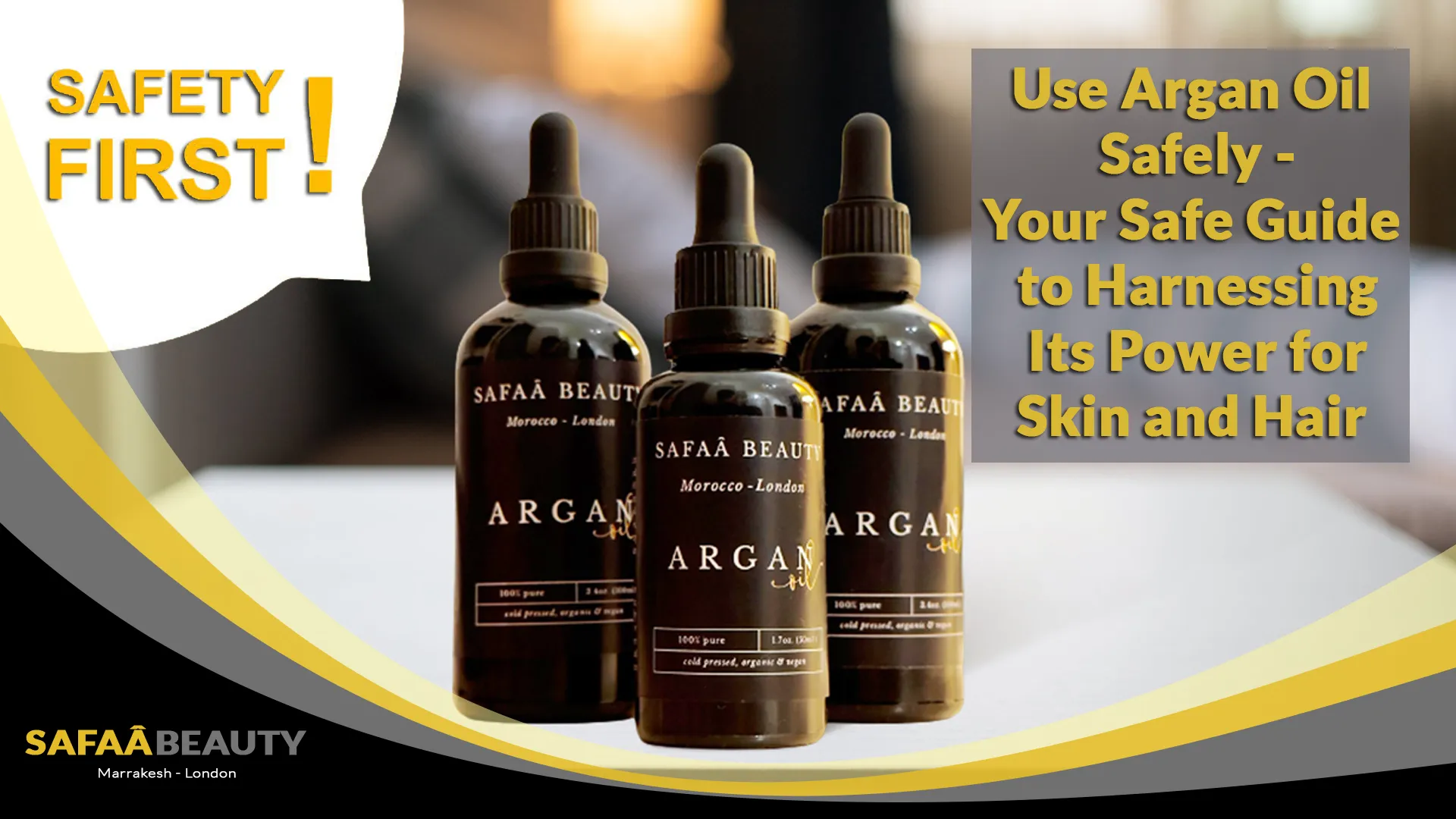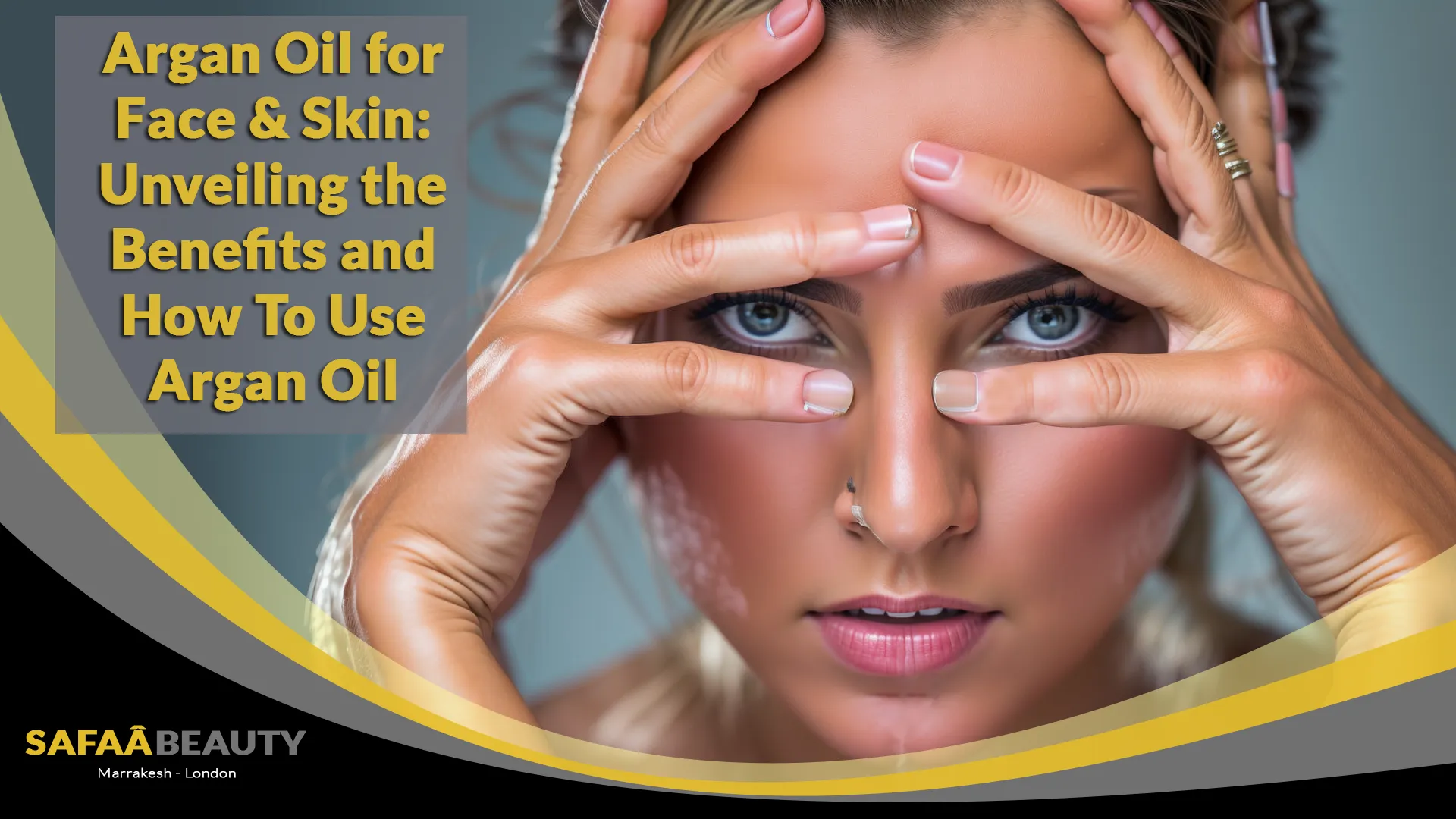What Are the Benefits of Argan Oil for Skin Care in Autumn
In the world of skin care, Argan oil has rightfully earned its reputation as a versatile and beneficial ingredient. With its origins in the Argan tree native to Morocco, this liquid gold is packed with essential fatty acids, antioxidants, and vitamins, making it an invaluable asset in maintaining skin health and combating various skin concerns. As the seasons change and autumn brings cooler, drier air, incorporating Argan oil into your skincare routine can help protect your skin from the harsh elements and keep it looking and feeling its best.
Content
- Understanding the Power of Argan Oil
- Selecting the Best Argan Oil for Your Skin
- Using Argan Oil for Your Autumn Skincare Routine
- Incorporating Argan Oil into Your Autumn Beauty Rituals
- Potential Side Effects and Precautions
- Frequently Asked Questions About Argan Oil in Autumn Skincare
- Conclusion: Embrace Healthy Autumn Skin with Argan Oil
- Understanding the Power of Argan Oil

What is Argan Oil?
Argan oil, often referred to as "liquid gold," is a natural oil extracted from the kernels of the Argan tree (Argania spinosa), which is native to Morocco. This precious oil has gained global recognition for its exceptional skincare properties, making it a sought-after ingredient in beauty products.
The Benefits of Argan Oil for Your Skin
Argan oil is a skincare superhero, packed with essential nutrients and properties that benefit your skin in numerous ways. It contains essential fatty acids, such as oleic and linoleic acids, which help maintain your skin's natural barrier. This barrier is vital in protecting your skin from external stressors, retaining moisture, and preventing dryness and irritation. The antioxidants in Argan oil, including vitamin E and other tocopherols, combat free radicals, providing anti-inflammatory and anti-aging benefits. Argan oil can help reduce the appearance of fine lines and wrinkles, leaving your skin smoother and more youthful. In the rough weather of Autumn pure Argan oil is the perfect remedy against dry skin and to keep skin and hair in top condition.
Why Choose Argan Oil for Autumn Skincare?
As autumn arrives, so does a drop in temperature and humidity levels. This change in weather can lead to drier skin, making it essential to adjust your skincare routine to suit the season. Argan oil is a great choice for autumn skincare for several reasons:
- Protection from Dryness: Argan oil for the skin is an excellent moisturizer, helping to keep your skin hydrated and preventing dryness, flakiness, and rough patches.
- Nutrient-rich: It is rich in essential fatty acids, vitamins, and antioxidants that nourish, replenish, and protect the skin, especially when faced with the challenges of autumn weather.
- Non-Greasy: Despite its hydrating properties, Argan oil is lightweight and non-greasy, making it suitable for every skin type, including oily and sensitive skin.
- Anti-Inflammatory: The anti-inflammatory properties of Argan oil can help soothe irritated skin, which may be more prone to redness and sensitivity during the autumn months.
- Hair growth; Argan oil can also help, eventually in combination with other organic oils, to boost your hair growth.
In the next sections, we'll delve deeper into how to choose the right Argan oil, incorporate it into your autumn skincare routine, and address common questions and concerns about using Argan oil for your skin during this season.
2. Selecting the Best Argan Oil for Your Skin
Organic Argan Oil vs. Cosmetic Argan Oil
When choosing Argan oil for your autumn skincare, you'll encounter two main types: organic and cosmetic Argan oil.
- Organic Argan Oil: This type of Argan oil is sourced from the kernels of Argan trees grown without the use of pesticides or synthetic chemicals. It is considered purer and more environmentally friendly.
- Cosmetic Argan Oil: Cosmetic Argan oil is still of high quality but may not be certified organic. It is often more affordable than its organic counterpart.
Both types offer skincare benefits, so your choice may depend on personal preferences and priorities. If you prefer organic and environmentally conscious products, organic Argan oil may be your top pick.
How to Identify High-Quality Argan Oil
Whether you opt for organic or cosmetic Argan oil, it's crucial to select a high-quality product. Here are some tips to help you identify premium Argan oil:
- Check the Ingredients: Argan oil should have only one ingredient: 100% Argania spinosa kernel oil. Avoid products with added fragrances, preservatives, or fillers.
- Look for Cold-Pressed: Cold-pressed Argan oil is extracted without heat, preserving its nutrient content. This method is preferred for high-quality Argan oil.
- Packaging: Argan oil is sensitive to light and air, which can cause it to degrade. Choose Argan oil packaged in dark glass bottles with airtight seals to protect its integrity.
- Certifications: Look for certifications such as "USDA Organic" or "ECOCERT" on the label to ensure the product meets specific quality standards.
Now that you've selected your Argan oil, let's explore how to use it effectively in your autumn skincare routine.
3. Using Argan Oil for Your Autumn Skincare Routine
Daily Moisturization and Hydration
As the air becomes cooler and less humid during autumn, your skin may lose moisture more rapidly, leading to dryness and discomfort. Incorporating Argan oil into your daily skincare routine can help combat this issue. After cleansing and toning your face, apply a few drops of Argan oil to your damp skin. Gently massage it in, allowing the oil to lock in moisture and create a protective barrier. This not only keeps your skin hydrated but also leaves it feeling soft and supple.
Treating Dry and Flaky Skin
If you notice dry or flaky patches on your skin during autumn, Argan oil can come to the rescue. Simply apply a small amount of Argan oil directly to the affected areas. Its nourishing properties will help alleviate dryness and soothe any irritation. For an intensive treatment, you can mix a few drops of Argan oil with your moisturizer for added hydration.
Enhancing Skin Elasticity
Maintaining skin elasticity is crucial for a youthful appearance, and Argan oil can be your ally in this endeavor. It contains essential fatty acids that promote collagen production and help your skin retain its elasticity. To reap these benefits, apply Argan oil to your face and neck in gentle upward motions as part of your evening skincare routine. Over time, you may notice improved skin firmness and a reduction in fine lines and wrinkles.
Protecting Your Skin from Environmental Stressors
Autumn may bring with it a range of environmental stressors, from wind and cold to exposure to indoor heating systems. Argan oil acts as a natural barrier, helping shield your skin from these harsh elements. Before heading outdoors, consider applying a thin layer of Argan oil to your face. It can provide an extra layer of protection while keeping your skin feeling comfortable.
Tackling Skin Conditions with Argan Oil
Argan oil's anti-inflammatory and moisturizing properties make it suitable for addressing various skin conditions. If you have sensitive or inflammatory skin conditions like eczema or rosacea, Argan oil can help soothe flare-ups and reduce redness. It's essential to consult with a dermatologist for specific guidance on incorporating Argan oil into your skincare routine if you have a pre-existing skin condition.
In the following sections, we'll explore additional ways to make the most of Argan oil in your autumn beauty rituals, discuss potential side effects, and answer common questions about its use.
4. Incorporating Argan Oil into Your Autumn Beauty Rituals
As you embrace the autumn season, you can elevate your beauty rituals by including Argan oil in various ways. Here are some creative ideas for incorporating this versatile oil into your routine:
Argan Oil as a Cleansing Oil
Double cleansing is a popular skincare practice that involves using an oil-based cleanser to remove makeup and sunscreen before using a regular cleanser. Argan oil is an excellent choice for this purpose, as it effectively dissolves makeup and leaves your skin feeling clean and nourished.
Argan Oil in Your Autumn Face Masks
Create DIY face masks by combining Argan oil with other natural ingredients like honey, yogurt, or oatmeal. These masks can provide a hydrating and revitalizing boost to your skin, especially during the autumn season.
Argan Oil for Overnight Skin Repair
Apply a few drops of Argan oil to your face and neck before bedtime for a deeply hydrating overnight treatment. You'll wake up with smoother, more radiant skin, ready to face the day's challenges.
Combining Argan Oil with Other Oils
Feel free to experiment with combining Argan oil with other carrier oils, such as jojoba oil or castor oil, to tailor your skincare routine to your specific needs. Mixing oils can enhance their benefits and address various skin concerns.
The next section will address potential side effects and precautions when using Argan oil for autumn skincare.
5. Potential Side Effects and Precautions
While Argan oil is generally safe for most skin types, it's essential to be aware of potential side effects and take precautions when using it in your autumn skincare routine:
Possible Allergies to Argan Oil
Although rare, some individuals may be allergic to Argan oil. To check for allergies, perform a patch test before using Argan oil on your face. Apply a small amount of oil to a discreet area of your skin and wait for 24 hours. If you experience any redness, itching, or irritation, discontinue use.
Avoiding Excessive Oiliness
You may be concerned about using Argan oil if you have naturally oily skin. However, Argan oil is non-comedogenic and often well-tolerated by oily skin types. To avoid excessive oiliness, use only a few drops of Argan oil and apply it sparingly. Adjust the amount as needed to suit your skin's preferences.
Handling Nut Allergies
Argan oil is derived from the nuts of the Argan tree. If you have nut allergies, it's crucial to exercise caution when using Argan oil. Consult with an allergist or dermatologist to determine whether Argan oil is safe for your specific condition.
In the next section, we'll answer frequently asked questions about using Argan oil for autumn skincare.
6. Frequently Asked Questions About Argan Oil in Autumn Skincare
How Often Should I Use Argan Oil in Autumn?
Argan oil is safe for daily use. You can incorporate it into both your morning and evening skincare routines for optimal hydration and protection during the autumn season.
Can Argan Oil Benefit Oily Skin in Autumn?
Yes, Argan oil can benefit oily skin by providing essential moisture without clogging pores. Use a minimal amount and monitor how your skin responds to find the right balance.
Can Argan Oil Help Prevent Skin Cancer?
Argan oil contains antioxidants, which can help protect your skin from UV damage and reduce the risk of skin cancer. However, it should not be used as a sole replacement for sunscreen. Always apply sunscreen when spending time outdoors.
Does Argan Oil Cause Skin Breakouts?
Argan oil is generally non-comedogenic, meaning it's unlikely to cause breakouts. However, if you have acne-prone skin, perform a patch test and introduce Argan oil gradually to ensure it suits your skin.
Can Argan Oil Reduce Oiliness in the Skin?
Argan oil can help balance oil production in the skin. Use organic Argan oil sparingly, it can hydrate and regulate oil production, reducing the appearance of excess oiliness.
7. Conclusion: Embrace Healthy Autumn Skin with Argan Oil
Incorporating quality Argan oil into your autumn and winter skincare routine is a wise choice to protect your skin from the season's challenges. Its nourishing and protective properties and its versatility in various beauty rituals make it a valuable addition to your beauty arsenal.
As you embark on your autumn skincare journey with Argan oil, remember to select a high-quality product, perform a patch test if needed, and customize your routine to suit your unique skin type and concerns. You can enjoy healthy, radiant skin throughout the autumn season and beyond with the right care and attention.
Summarize:
To summarize, here are the key takeaways:
- Argan oil is a powerful and versatile ingredient for autumn skincare.
- Choose high-quality Argan oil, whether organic or cosmetic.
- Use Argan oil daily for moisturization and protection.
- Address specific skin concerns with targeted treatments.
- Incorporate Argan oil creatively into your beauty rituals.
- Be aware of potential side effects and take precautions.
- Consult a dermatologist for personalized skincare guidance.
With these insights and tips, you can make the most of Argan oil for your autumn skincare needs. Embrace the season confidently, knowing your skin is nourished, protected, and ready to glow.
Hashtags:
#ArganOil #SkincareTips #AutumnSkincare #HealthySkin #BeautyRoutine #Moisturize #GlowingSkin #NaturalBeauty #AntiAging #SkinProtection #OrganicBeauty #BeautyEssentials #RadiantSkin #ArganOilBenefits #SkincareRoutine #SelfCare #FallSkincare #NourishYourSkin #BeautyHacks #Hydration #YouthfulSkin #BeautySecrets #SkinCareRegimen #ArganOilLove #HealthyGlow #SkinWellness
Other Blogposts Our Readers Picked:
Unlock the Power of Plant Oils: Navigating Common Mistakes for an Enriching Skincare
Uncover the best practices for plant oil use in your skincare routine. Learn about oxidation risks, expiration, proper application, and essential storage tips.
Argan Oil for Face & Skin: Unveiling the Benefits and How To Use Argan Oil
Discover the magic of argan oil for your skin in our blog. Learn why it's a skincare game-changer!
The Moroccan Women's Cooperative: Unveiling the Power of Argan Oil
Explore the transformative role of Moroccan women-led cooperatives in Argan oil production and its global impact.












